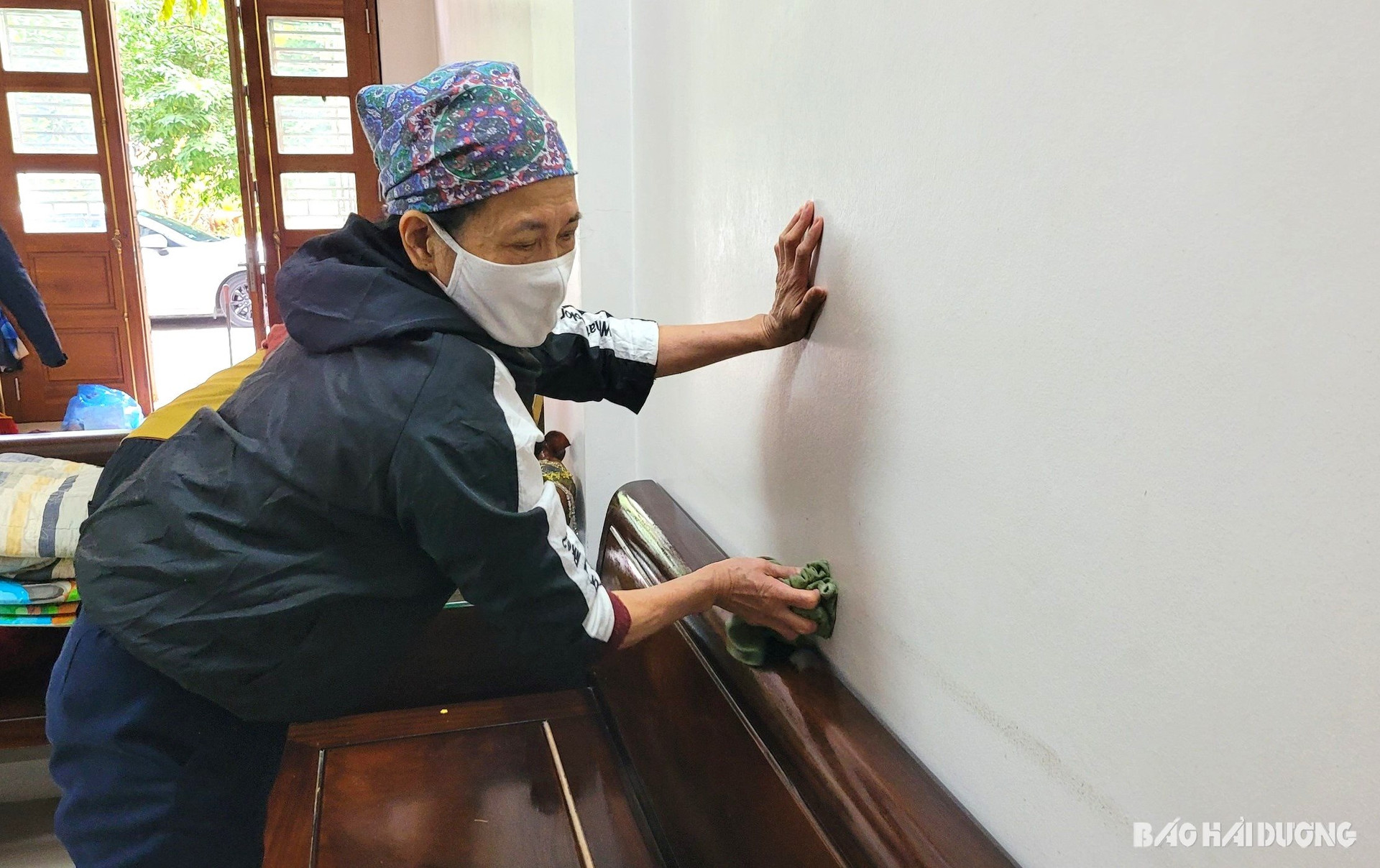From April 15, 2020, if the homeowner does not pay social insurance and health insurance for the domestic worker, they will be fined from 10-15 million VND. However, for more than 3 years, in Hai Duong, this regulation has been almost forgotten.

dare not ask
Having worked as a maid for 3 years and changed employers twice, Ms. Nguyen Thi Hoai, from Thong Kenh Commune (Gia Loc), has never been asked by her employer to pay social insurance or health insurance. The first year, she took on the job of babysitting for her cousin's child, so she accepted any salary and did not dare to ask for more. Two years later, she changed employers and worked as a maid for a family in Pham Ngu Lao Ward (Hai Duong City) with an agreed salary of 7 million VND/month. Ms. Hoai has 2 Sundays off each month.
In addition to taking care of the children, Ms. Hoai also has to do the laundry, cook, and sometimes even pick up the homeowner’s eldest son who is in elementary school. “The work is hard, always on my feet, but I don’t dare ask them to pay insurance, as long as they pay me on time and give me two Sundays off a month, that’s good enough,” Ms. Hoai said.
Currently, most families in Hai Duong find domestic helpers through referrals from relatives or relatives in the countryside. The number of families who find domestic helpers through employment centers and agencies is very small. Because most of them are acquaintances, the homeowner and the domestic helper usually do not sign a labor contract. Wages and regulations on the number of days off and other benefits are mainly agreed upon verbally.

The 2012 Labor Code and its guiding documents clearly stipulate that employers must sign a written contract with domestic workers. Employers are also responsible for paying an additional amount equivalent to the social insurance contribution at the same time as the employee's salary. Even though Decree 28/2020 on administrative sanctions for violations in the field of labor and social insurance, which took effect 3 years ago, clearly stipulates that if the homeowner does not pay social insurance and health insurance for domestic workers, they will be fined a significant amount. However, this provision has not been noticed by both parties.
Ms. Pham Thi Luu in Zone 3, Thanh Binh Ward (Hai Duong City) said: “I have hired 3 housekeepers but did not know about this regulation. They came to help my family but did not mention or ask for insurance.”
According to the Provincial Social Insurance, after 3 years of Decree 28 taking effect, no employer has purchased insurance for their domestic workers. Whether or not the domestic workers are paid by their employers to purchase insurance is also difficult to count and understand.
Yes or no
According to Lawyer Nguyen Kieu Dong, Chairman of the Hai Duong Provincial Bar Association, the 2012 Labor Code and Decree 27/2014 detailing the implementation of a number of articles of the Labor Code previously stated that employers are responsible for paying their domestic workers an additional amount equivalent to the level of social insurance and health insurance contributions. However, because the regulations do not have a mechanism for penalties in cases where employers violate the regulations, they are not effective when applied in practice. Decree 28 sets out specific penalties for violations. This can be considered a basis for protecting the rights of domestic workers. The law has provided quite specific sanctions, but it is very difficult to monitor whether the employer pays insurance for the domestic worker or not. Many domestic workers even accept their fate without reporting the employer when they do not ensure their rights.
Domestic workers are also hesitant to pay insurance for themselves because they think that domestic work is a temporary job, not sustainable, and difficult to stick with long term until receiving social insurance, so they do not want to pay.
Ms. Nguyen Thi Muc, who is working as a housekeeper for a homeowner on Vu Huu Street, Tan Binh Ward (Hai Duong City) wondered: “The homeowner gave me extra insurance money, but I don’t know how to pay it or what conditions are required. Just hearing about the procedures and paperwork for insurance makes me feel uneasy. Moreover, if we pay insurance for a few years and then stop participating, will we still get any benefits?”
For homeowners who are willing to pay insurance for their domestic workers, the procedures and practical problems that arise also make them hesitate. Mr. Nguyen Van Duc in Lai Cach town (Cam Giang) asked: “We have paid for insurance but the domestic worker does not pay, is it related or not? In cases where the domestic worker works for a few months and then quits or hourly domestic workers, how will the insurance be calculated? Moreover, domestic workers currently demand quite high salaries, if insurance is added, many families will find it difficult to pay.”
Most domestic workers have little access to legal information. They often do not sign a written labor contract with their employer, so they have no basis to claim their rights. Therefore, the current regulations on social insurance or health insurance for domestic workers are as good as non-existent.
BAO ANH